I spent eight days volunteering in Cambodia with Hands on Journeys. Voluntourism is a difficult topic to address, but if it’s done in a sustainable and responsible way it can make a big difference. We might even be able to change the world, one village at a time.
Volunteering in Cambodia: When Second Chances Change the World
When Simla Sooboodoo snapped out of it, she found herself standing in front of the bathroom mirror with a shaved head. “What happened?” she cried, as she stared back at herself in confusion.
She didn’t know where she was or what was going on; the previous 42 days had been completely erased from her memory. It was a brain hemorrhage that put her in the ICU just two months earlier.
Without a clear picture of what happened, the doctors gave her a 10% chance of surviving. She spent a full month unresponsive in a coma, and it was unclear if she would ever return to normal life.
Miraculously, she did.
A few months later, however, the headaches began. An angiogram revealed an aneurysm and Simla was admitted for an 11-hour brain operation. She spent another month in the ICU.
My time at the neurological ICU in Royal Prince Alfred was bleak; no television, no music, and absolutely nothing to do. Armed with my Bible and a few women’s magazines, I lived my days watching machines flicker as patients around me fought for life. It was an overwhelming experience that was heartbreaking and had me questioning everything. Every moment of every day I thought, “What is happening and why am I here?”
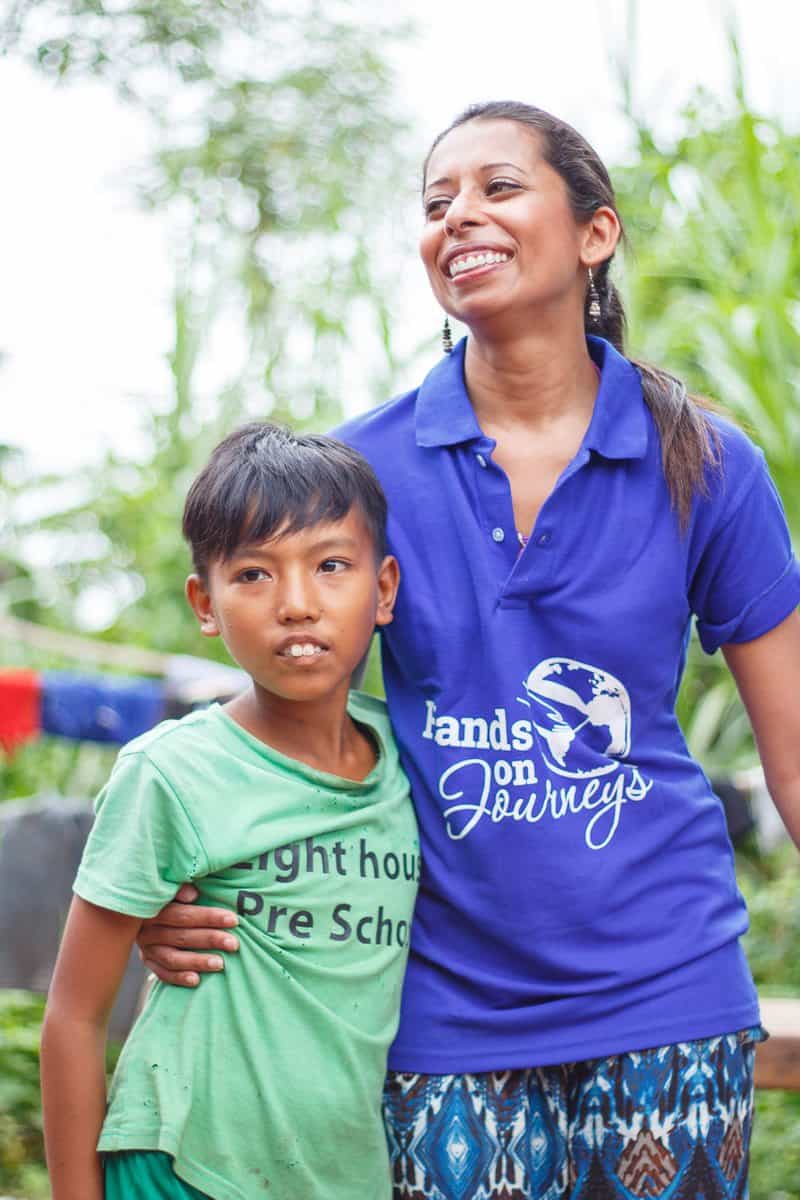
Simla spent this time reflecting on the things that were happening in her life. She realized that, if she was being given a second chance to live, it must be for a reason. It must be for a greater purpose.
Simla began dedicating her personal time to helping children in developing countries. She used her holidays as a chance to give back to schools, orphanages, villages, and slums, everywhere from Fiji to India to Cape Town to Cambodia. “Through my travels,” she says, “I built loving connections with people who were begging and fighting for their lives on the street.”
Combining this passion and her previous skills in the travel industry, Simla set upon a new journey to create a tour company that would transform people’s lives.
Thus, Hands on Journeys was born.
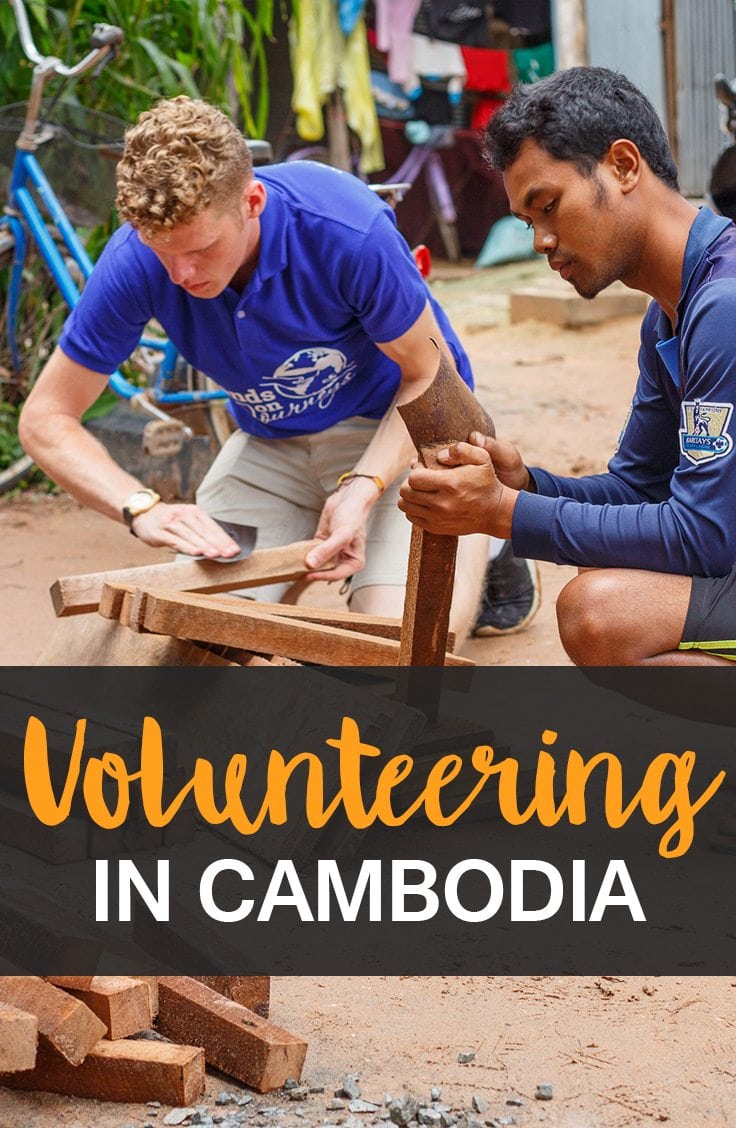
Recognizing Poverty in Cambodia
The inherent nature of the travel framework makes poverty in developing countries easy to ignore. As travelers, we can visit an impoverished village for a day and return in the evening to a beautiful hotel room with a queen-sized bed and an Italian shower.
Neither Simla nor myself are against big comfy beds or luxury showers, but the fact remains that we can never truly understand something like poverty until we experience it, feel it, or live in it. Most of us could never imagine living on less than 93 cents per day, but according to The World Bank, that’s the poverty line in Cambodia and one in five Cambodian people live below it.
Let’s repeat that. 93 cents per day. That’s $340 USD in an entire calendar year. The CIA website states:
37% of Cambodian children under the age of 5 suffer from chronic malnutrition [and] more than 50% of the population is less than 25 years old. The population lacks education and productive skills, particularly in the impoverished countryside, which also lacks basic infrastructure.
Right now tourism is the biggest industry in Cambodia, and places like Angkor Wat are hosting 3 million tourists per year. Last year that number was 2 million.
Indeed, tourism can be a powerful and impactful force for a country–it has already provided thousands of jobs to local Cambodian people. But throwing money into an economy doesn’t necessarily improve it. A large majority of people still live in poverty and lack the skills to be able to take on a job in tourism.
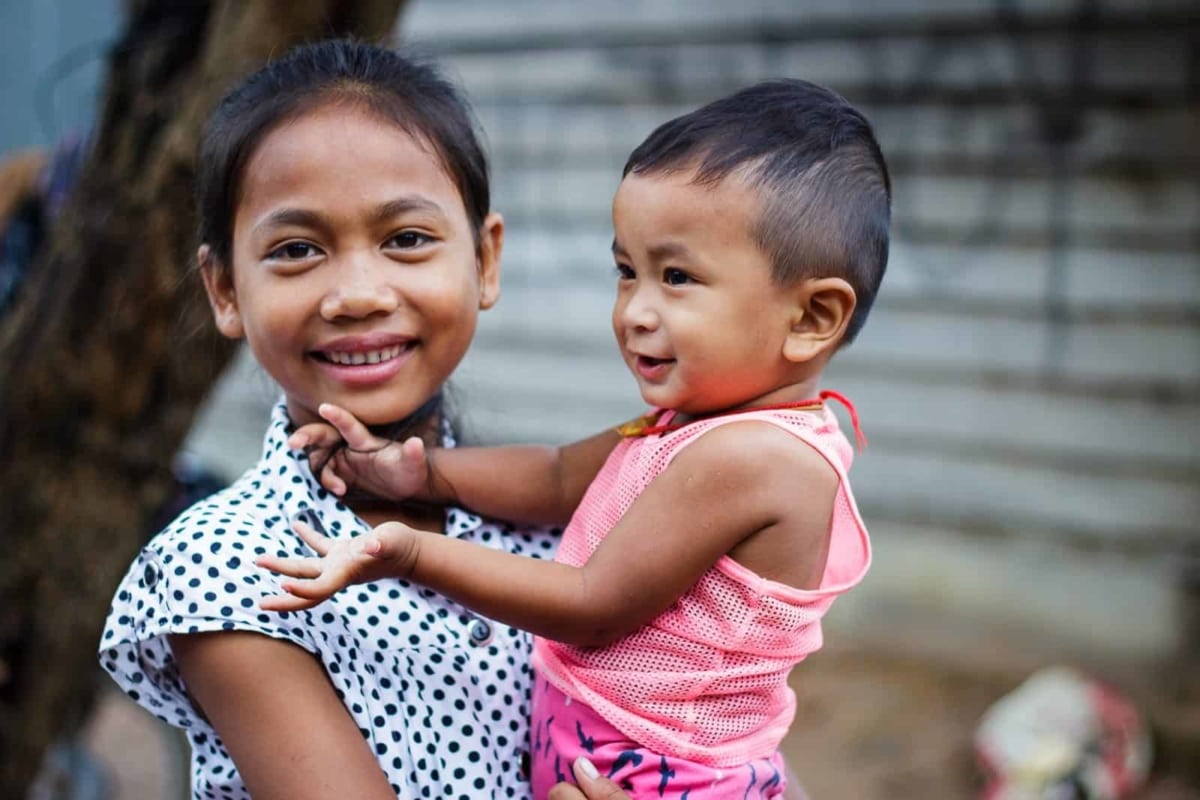
Privileged People in an Unprivileged Land
I’ll be honest–I tend to find myself prejudiced against tourists. It’s an especially hard line to walk because I am one. The three months I spent in Southeast Asia two years ago soured it for me—drunken backpackers ran amok, with very little regard for the cultures and the land they were traveling through.
I have seen even the most seasoned of travelers act downright disrespectful to locals, and it all comes down to one thing—privilege.
We are a privileged bunch, we travelers. If we have both the freedom and the means to take even a week off and go travel, that puts us in a very small demographic of extremely lucky individuals. The problem is that people carry this privilege with them, and when visiting impoverished places like Southeast Asia, this imbalance becomes the figurative elephant in the room. It’s the thing that everybody knows but nobody wants to talk about.
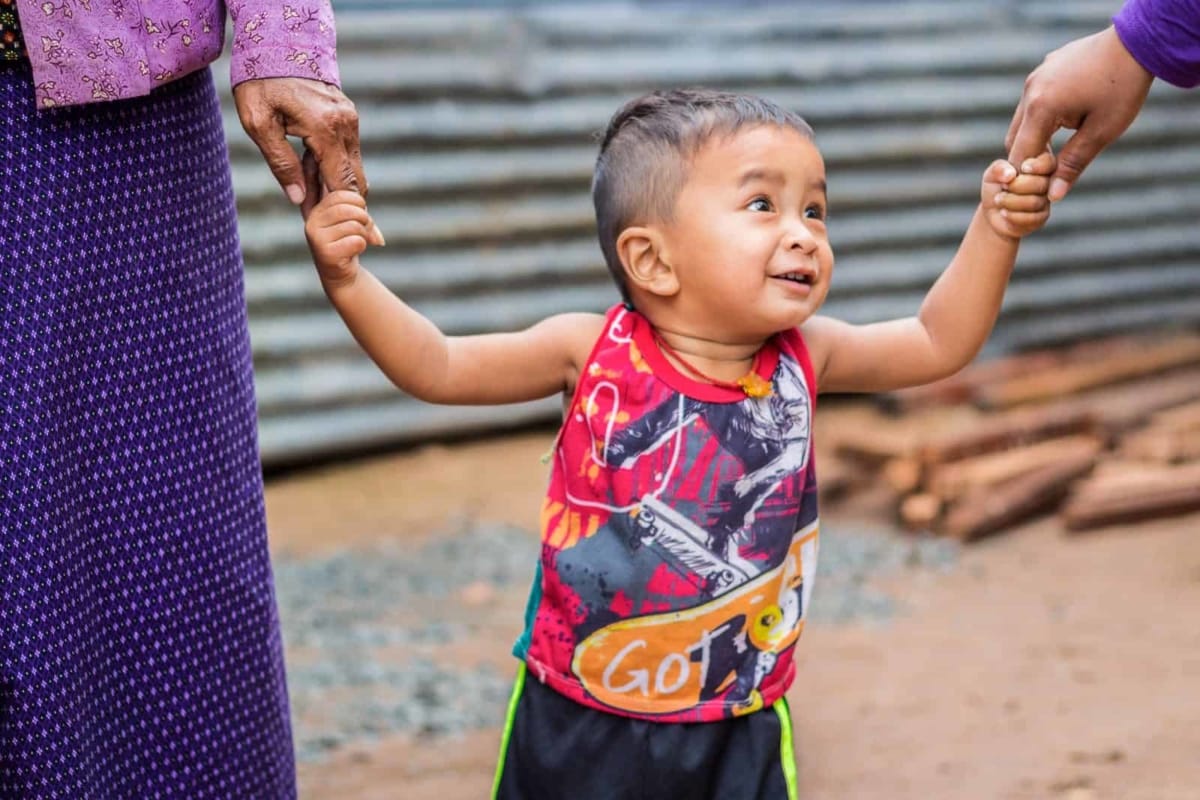
Before leaving for China three years ago, my sister said something striking to me. She said, “Remember, Jeremy, as an American, you have rights, but you don’t travel with them. China is a communist country, and you have to play by their rules.”
It’s something I’ve never forgotten, and it’s helped me to put my role in this world into perspective. Who am I to waltz into a new country and act like my opinion matters?
Who are we to waltz into an impoverished country and act like our money matters?
Photos by Daniel Clarke of Dan Flying Solo.
It’s Not About Money or Even Volunteering—It’s About Empowering People
Yes, money buys things that people need, but donating one sum of money isn’t sustainable. And quite frankly, it’s not money that makes the difference—it’s helping people.
But even our attempts to help people can be problematic. This is what can be so wrong with volunteering abroad. Are a group of people who have never built a picnic table supposed to donate a bunch of money and build, for example, an entire house?
“Saving the day” makes us feel good. It clears our conscience and we believe we’re doing something to better the world. But the reality is that bringing unskilled workers to an impoverished land to “make a difference” might well cause more problems.
How long is that roof going to last before it starts leaking? How long until that fancy new toilet backs up and becomes nothing more than an eyesore? What’s more, wouldn’t it be better to hire a local to do the job, rather than taking the job away from them?
We cannot save people—that’s not up to us. But we can help people to create something for themselves. Sometimes, all a person needs is an opportunity and a little bit of support.
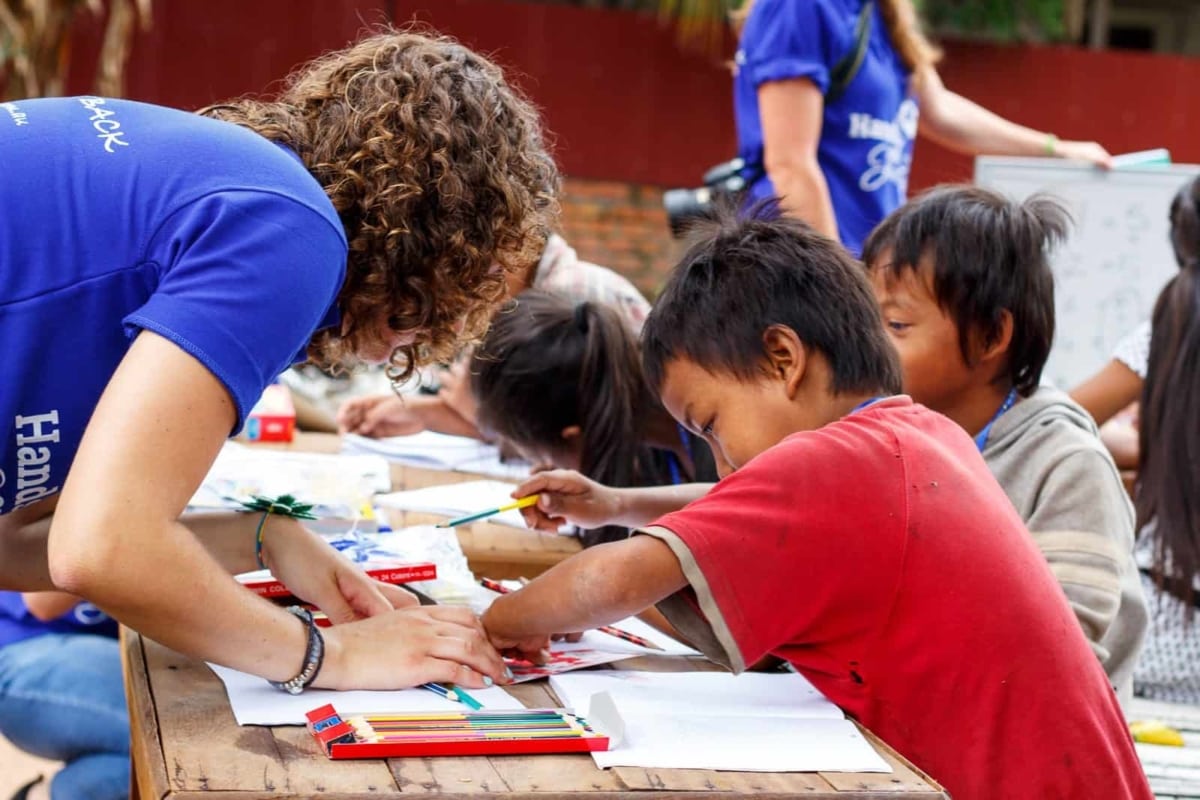
Mobilizing a Poverty-Stricken Village in Siem Reap
It was our first day in Siem Reap and we were already in the village–we weren’t wasting any time. Simla had learned about this place through her networks on the ground in Cambodia. It’s a village that even the local tuk-tuk drivers haven’t heard of. It’s a village that desperately needs some help.
The problem, though, was how to help them. As outsiders, it’s not up to us to tell them what they need. If we can’t understand their life, and if we haven’t lived it, we can’t tell them how to “make it better.” Our privilege tells us otherwise, but that’s the reality.
If we truly want to make a difference, we have to have compassion. We have to ask questions, we have to open a dialogue, and we have to listen. “What do you need?” becomes the most important question of all. “What can we do to help you?”
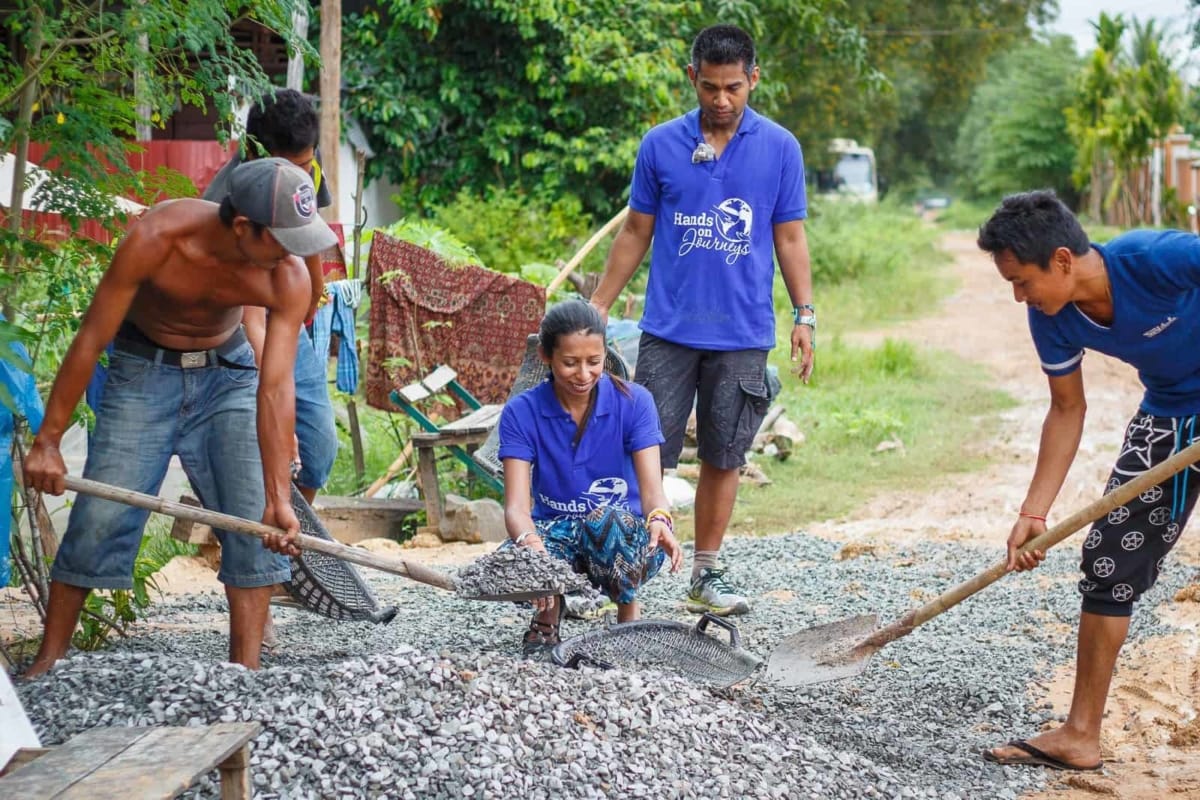
The village leader, Yeay, was very specific. What they needed was a new water well. The previous one was in disrepair, and soon their access to water would be significantly reduced. Not only that, but there wasn’t a drop of clean water in sight—everybody drank the same bacteria-ridden water they bathed in.
But they don’t know what bacteria is–hygiene is barely within the scope of understanding.
A new well was built with funds that were extracted from the price of the tour, and a charcoal filtration system was set up beside it. We worked directly with the kids in the village, teaching them how to brush their teeth, and Simla worked with the adults to ensure implementation of a daily routine moving forward.
The small donation of toothbrushes and toothpaste (which we appropriated from the bathrooms in our accommodation), coupled with a daily routine, will literally brighten the smile of every single child in that village, for the rest of their lives.
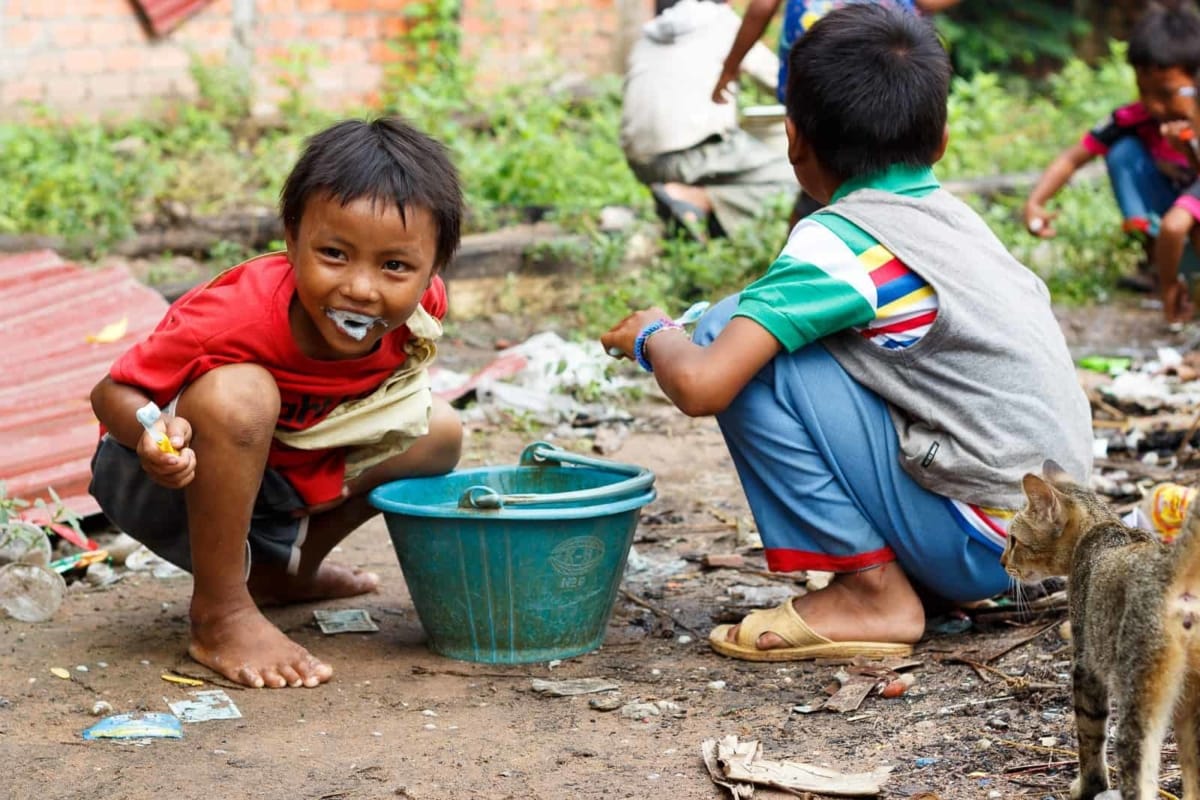
Our group also taught the kids how to wash their hands, and the females taught the women how to manage their monthly cycles.
According to Yeay, the village also needed a new shower, a new toilet, and some construction on one of their houses.
But more importantly, they needed jobs. When Simla visited the village for the first time, it was midday on a weekday, and most of the men were still in bed. They had no real purpose, and no reason to get up in the morning.
So we hired some local builders, paid the villagers a wage, and worked alongside them as friends.
When we arrived in the village as a group, we brought with us two truckloads of gravel. Immediately, using buckets from the village, and with no coaxing on our part, the men got to work. They began laying the rocks on the ground around the village, creating manicured pathways through the village. Just a small touch, and it was already starting to look a lot more like home.
We watched on in amazement and disbelief as the Cambodian people of the village came together. We worked alongside them and we were stunned to realize that sometimes a helping hand is all it takes to mobilize an entire community.
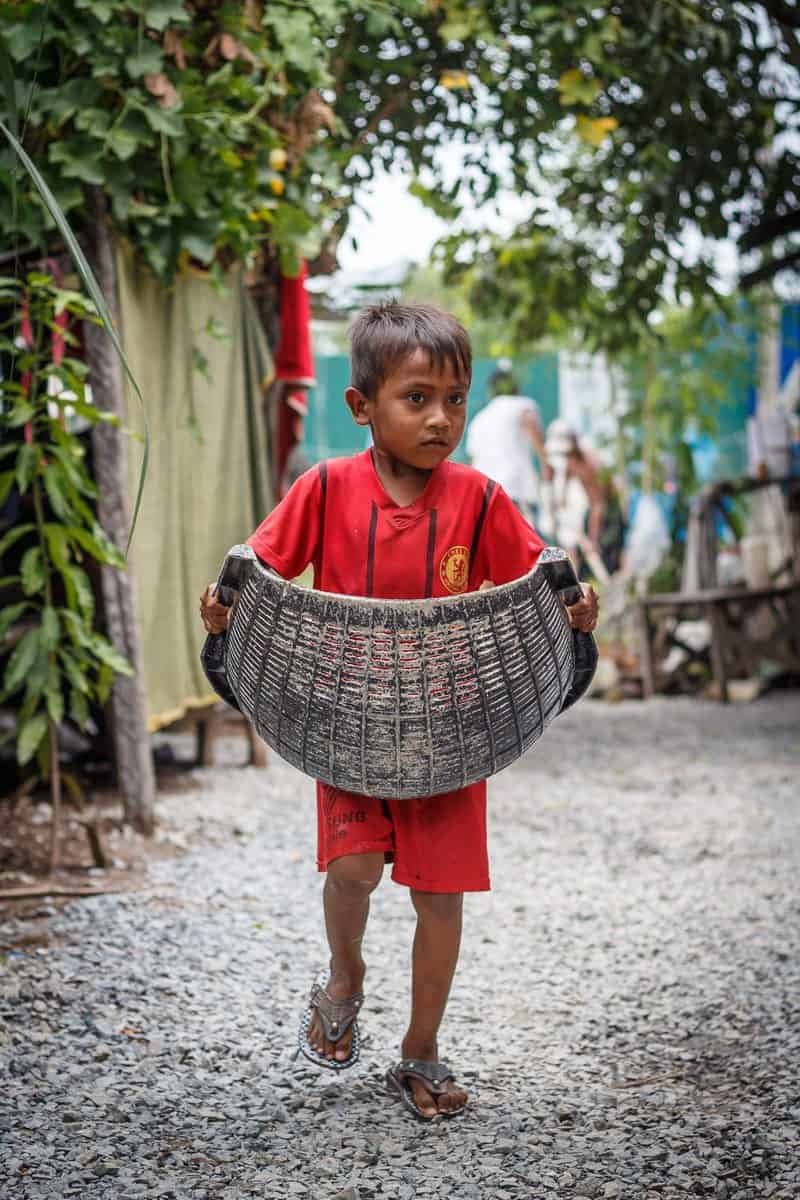
We also brought the village lumber to build small tables and benches. They could sell these structures to neighboring villages and utilize the money to buy more lumber and build and sell even more benches. We didn’t make donations–we gave them the right tools for the job.
After our first full day in the village, and with many more benches still to be constructed, we left for a good night’s sleep, in anticipation of an even longer day tomorrow. But when we returned the following morning, we found the lumber had been used in its entirety. The villagers had built a new kitchen table, which they desperately needed, and they completed the construction of every last bench they were planning to sell.
Not only did they build them, but they improved on their design overnight.
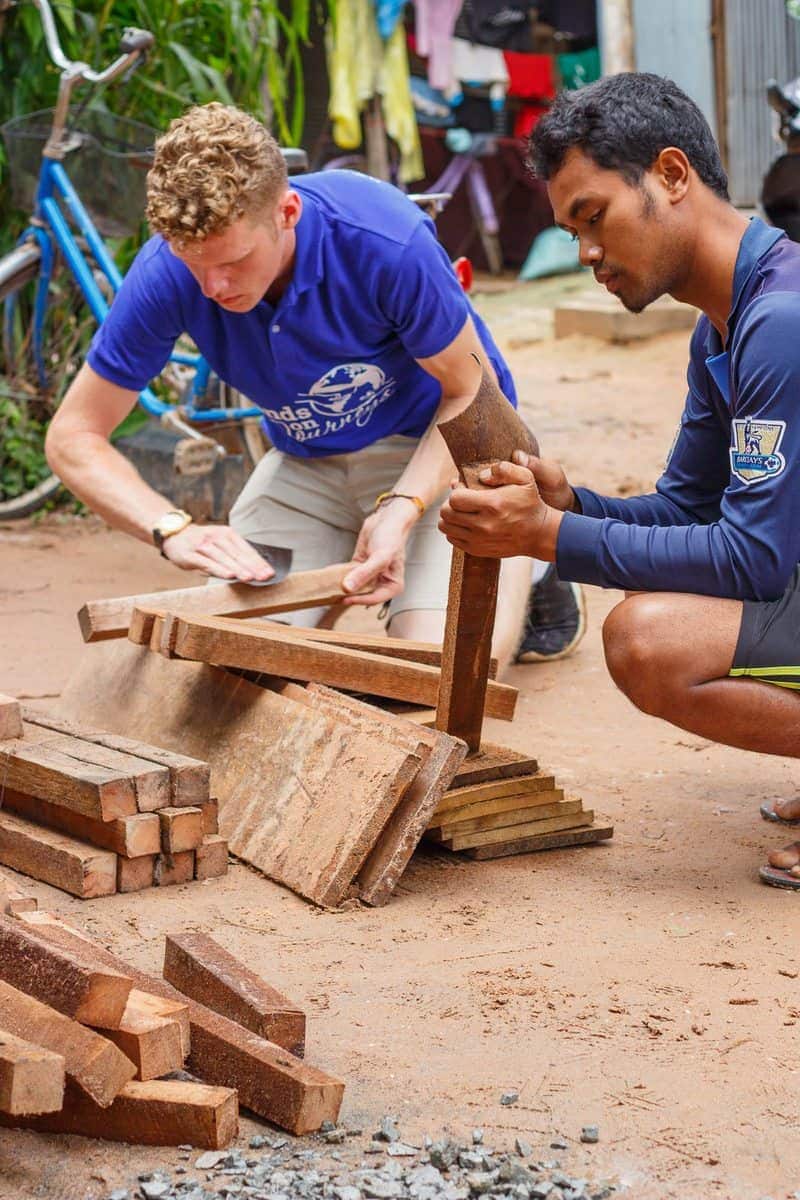
Through providing a small opportunity to the villages, and working with them, if only to let them know that they had not been forgotten, we gave them a gift far greater than the well or the kitchen table. We gave them hope.
The trick with volunteering is sustainability. It rarely exists because our privilege tells us to save these people. As the saying goes, “Give a man a fish and you feed him for a day. Teach a man to fish and you feed him for a lifetime.”
But, of course, it’s not quite that simple. So often we forget that, when a person is starving, that’s not the time to fill their head with knowledge. First, you must give them a fish, banishing their hunger, and only then can you teach them how.
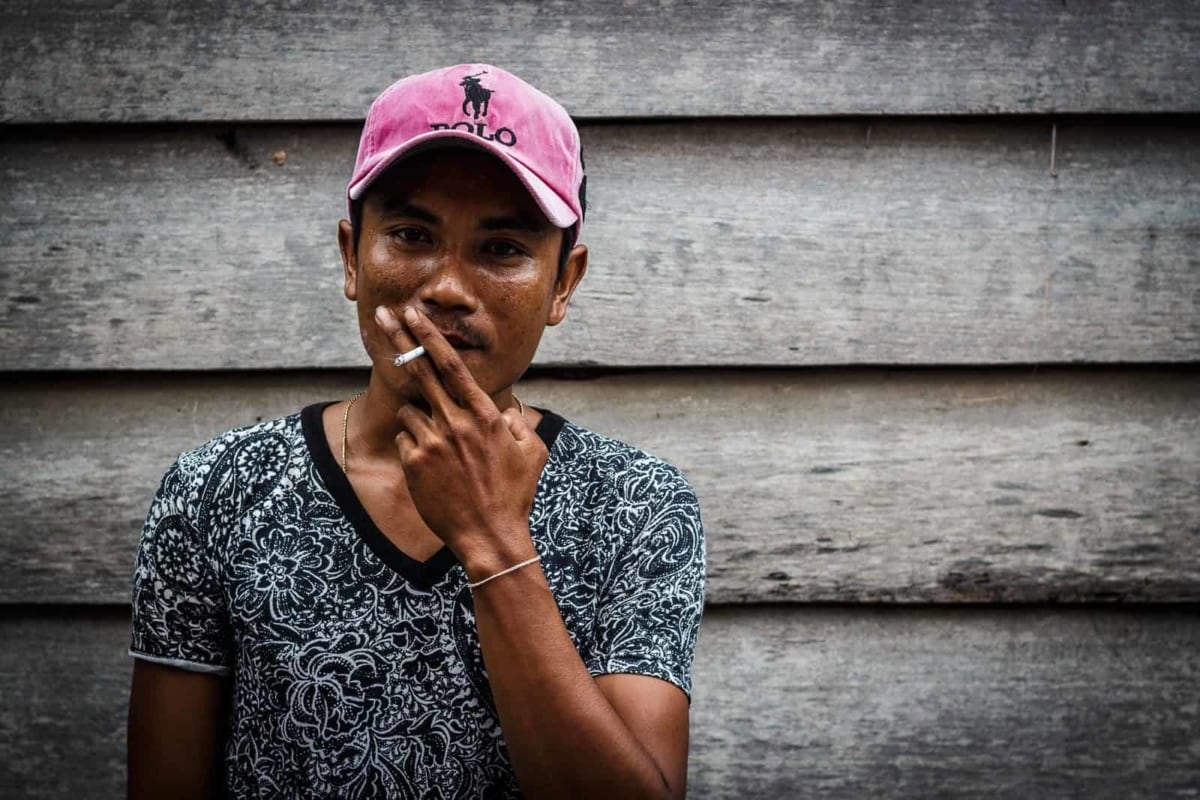
Traveling in Cambodia with Hands on Journeys
Hands on Journeys makes it a mission to transform people by connecting them. We provided an opportunity to the village and they were more than grateful to receive it. What I don’t think they realize, however, is how much more we probably gained from the experience than they did. We learned about ourselves in a world so drastically different from our own.
As someone who travels a lot, group tours aren’t always my jam. I like to take control of my experience, and give myself the flexibility to do as I please. This often means ending up in extremely uncomfortable situations that, quite honestly, might be overwhelming for the average traveler.
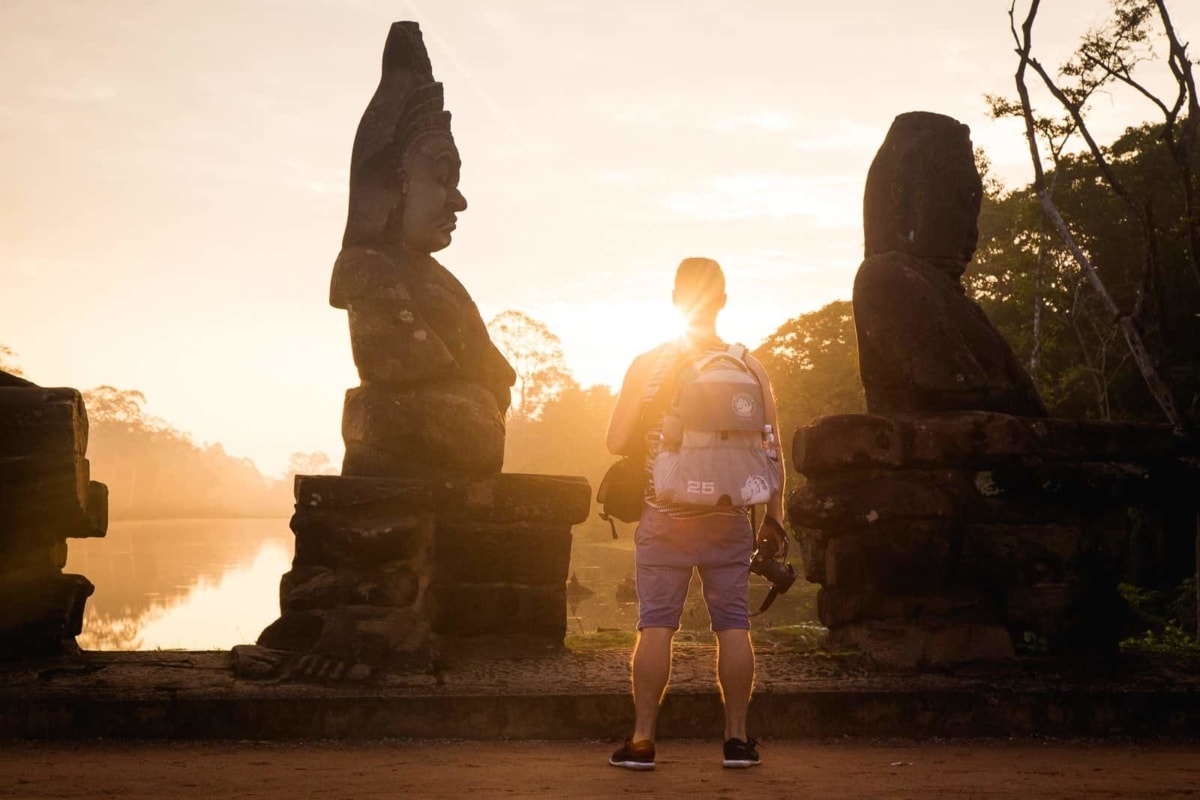
But traveling with Hands on Journeys made the journey accessible for travelers of all levels, while still digging into the local culture and experience. We went deep into villages in the countryside that no person could ever unearth on their own. It was because of Simla that we had access to these communities that would otherwise be impossible to reach.
And at the end of the day (with the exception of an overnight homestay in Phnom Penh) we returned to our 3-star hotels for comfort and rest before more and more days of exhausting but incredibly rewarding work.
It wasn’t all work, though–after all, you can’t travel and not go sightseeing! We spent half our time working in the villages, and the other half visiting the Temples of Angkor, the local markets, and learning about Cambodia’s intricate past.
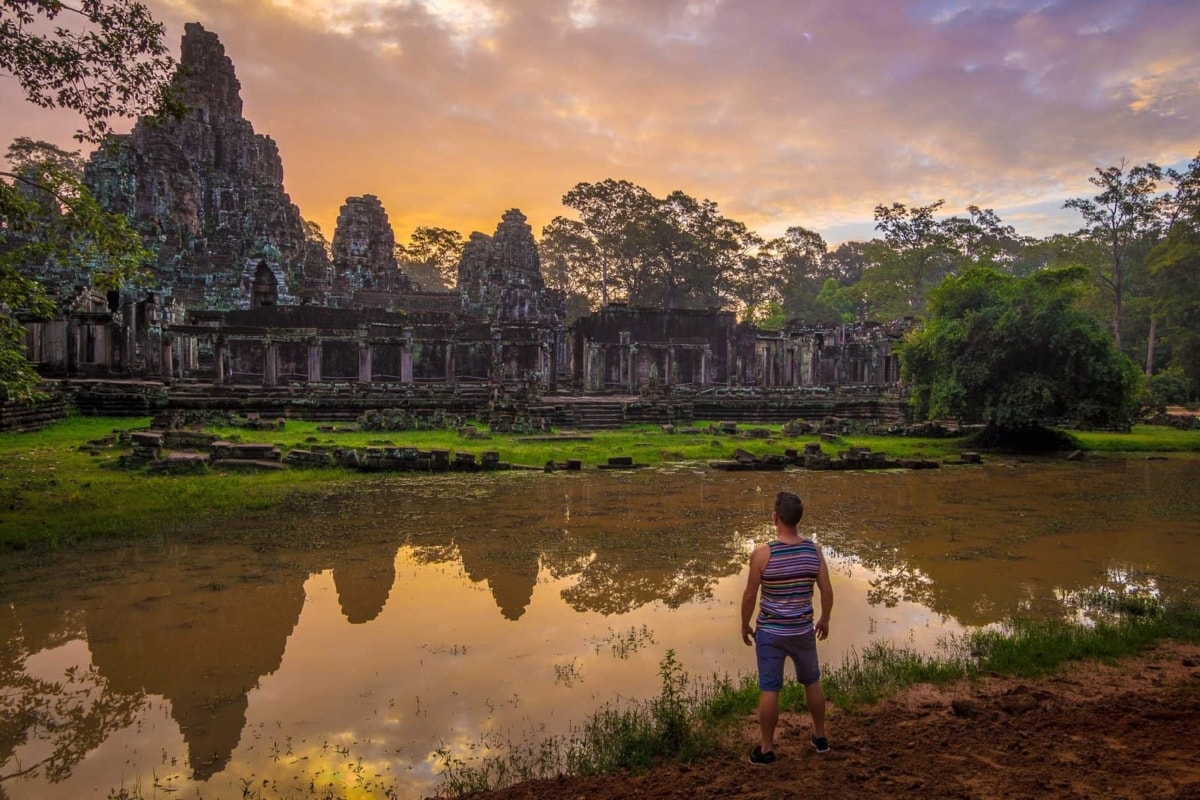
Hands on Journeys is a business, but the experience the leaders create is real. Simla’s mission was to create a sustainable tour company that would not only provide a platform for people to travel and open their minds, but to pay it forward in the process.
With 10% of the tour price going directly to the village, collectively the village receives upwards of $2,000 per tour for ongoing projects like wells, water filters, toilets and showers. That money is used to provide villagers with the tools they need, while our camaraderie empowers them to use these new tools to create a better life for themselves.
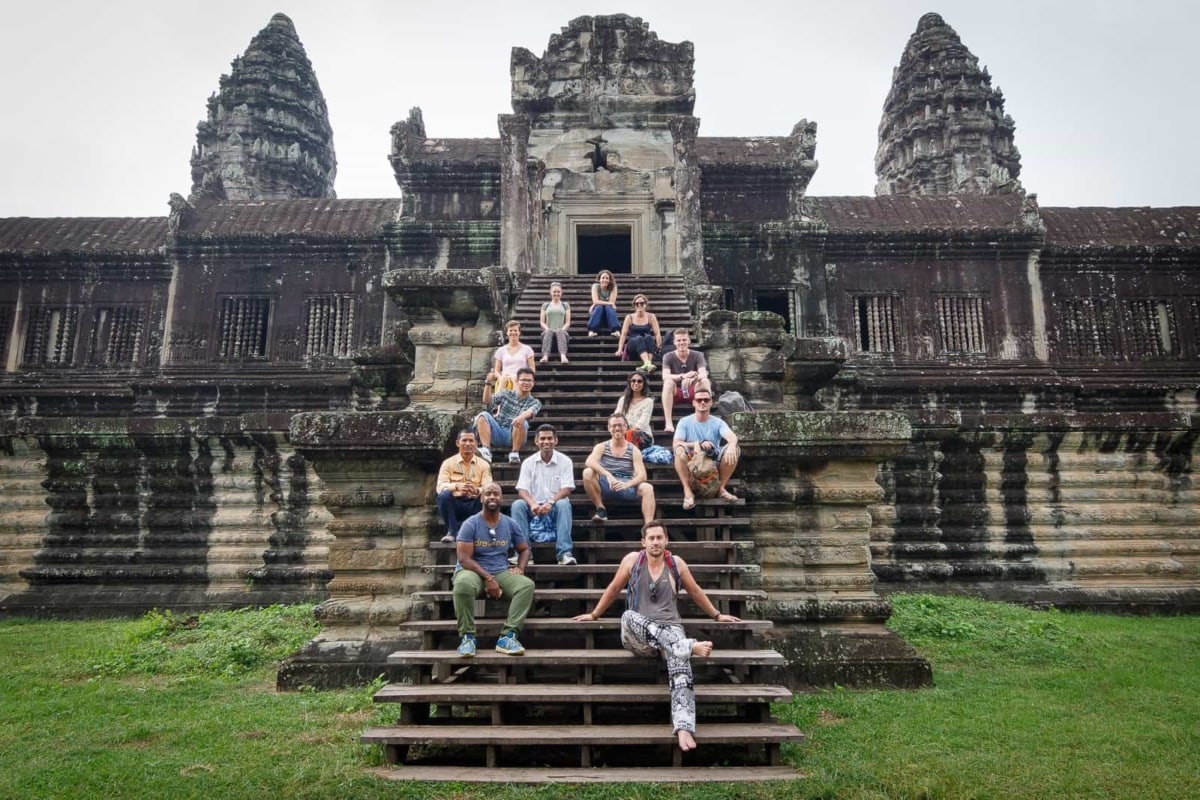
With two two-week tours available, one through Cambodia and Vietnam and another through India, Simla Sooboodoo is creating a new type of tourism. Hands on Journeys is the cumulative byproduct of Simla’s life, and she is using the second chance she was granted to pay her miracles forward.
“We often take things for granted,” says Simla, “requiring us to leave our comfort zone to gain full appreciation. Instead of picking away at life with complaints, let us do something about it. Listen to the subtle changes in life and strive to make a major one. Give yourself the chance to listen to your calling in life and allow your heart to guide you; it whispers quietly, so listen carefully.”
READ NEXT: Why You Shouldn’t Ride Elephants in Thailand
Disclaimer: My time in Cambodia was made possible through a partnership with Hands on Journeys. All opinions, however, remain my own.
I spent eight days volunteering in Cambodia with Hands on Journeys. Voluntourism is a difficult topic to address, but if it’s done in a sustainable and responsible way it can make a big difference. We might even be able to change the world, one village at a time.
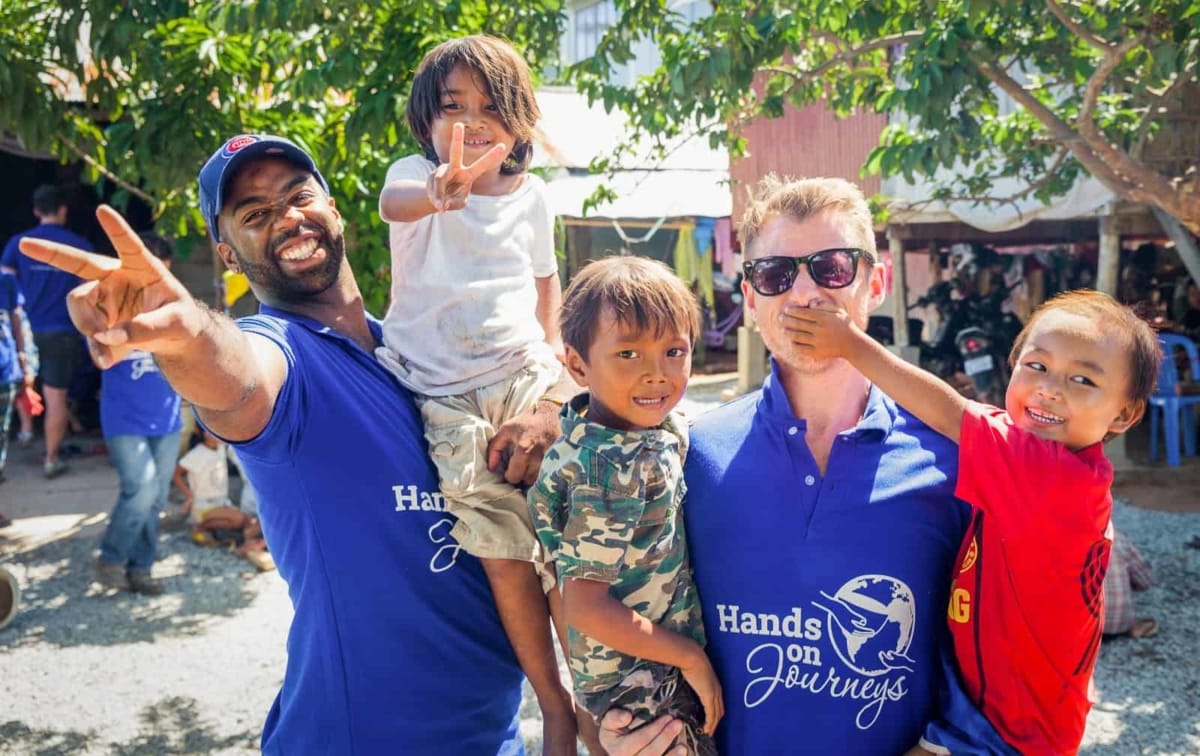

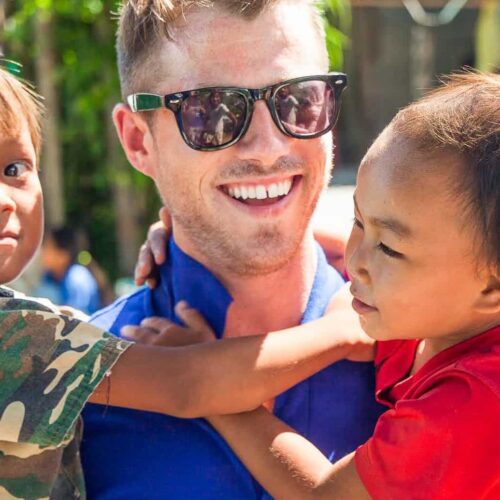
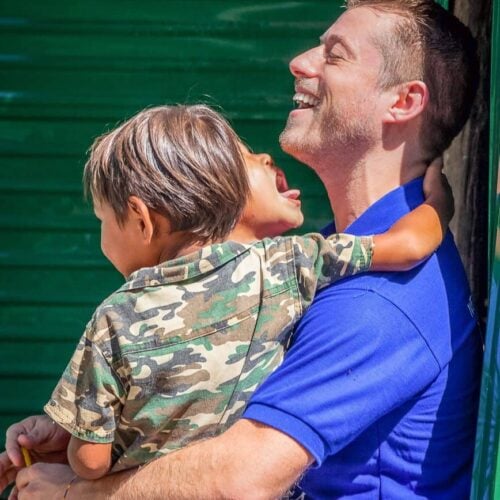
This really struck a chord with me, Jeremy. I agree that empowering people is the best way and you really made a difference in these villagers’ lives
I’m glad you agree, Suze. It’s such a complicated endeavor, with so many delicate dynamics to navigate. But we try 🙂
Loved this post! Definitely gives you something to think about before you book your next trip!
Thank for what you have done to the village. It is such an amazing tour experience. I hope Cambodia can increase and improve homestay for tourists who interest in knowing more about Cambodia culture.
It’s a wonderful country with wonderful people 🙂
This is good Jeremy. Though I could never afford it, I encourage those who can, to take “something” with them and leave it there. It may be encouragement, an idea, teaching someone else how to do a task or just (and probably as important) a bit of love.
Give a man a fish he’ll eat for a day.
Give him a fishing rod and his whole family can eat for a year or more.
Absolutely. And I believe this can be replicated anywhere–you don’t have to be traveling in a foreign country to leave an impact like this. We can manifest change in our daily lives.
Sounds like a pretty incredible company, and definitely a form of voluntourism that I could get behind. Visiting Cambodia was really difficult for me, mostly because I saw the poverty and really felt like I couldn’t do anything to help. I’m aware of the corruption there, and the fact that most of my tourist dollars weren’t even staying in the country.
I’m wary of any type of volunteering that involves living things, because it’s so easy for good intentions to morph into exploitation. But this… this sounds like a really positive way to actually do some good. I love that you asked what the village needed, rather than just going in and deciding for them.
What’s up, just wanted to tell you, I enjoyed this article.
It was inspiring. Keep on posting!
I love reading a post that can make people think.
Also, thanks for allowing for me to comment!
All looks good but do you think it is ever possible to write everything in a less patronising tone? I know your customer base are paying to feel better about themselves and lose some of their western guilt while getting selfies with cute poor kids but you can advertise it without acting like Cambodians are stupid. “hygiene isn’t even within the scope of understanding”. Please. Is that why they asked for toilets and a water well?
If an entire village doesn’t know they are supposed to brush their teeth, that doesn’t make them stupid. It makes them unaware.
Hi Jeremy, thanks for your article. Have you seen the TED talk with Tara Winkler? https://www.youtube.com/watch?v=L3nPMWkhbMI
Can you please let me know what you think!
Loved this post! Definitely gives you something to think about before you book your next trip!
Loved this post! Definitely gives you something to think abou you book your next trip!